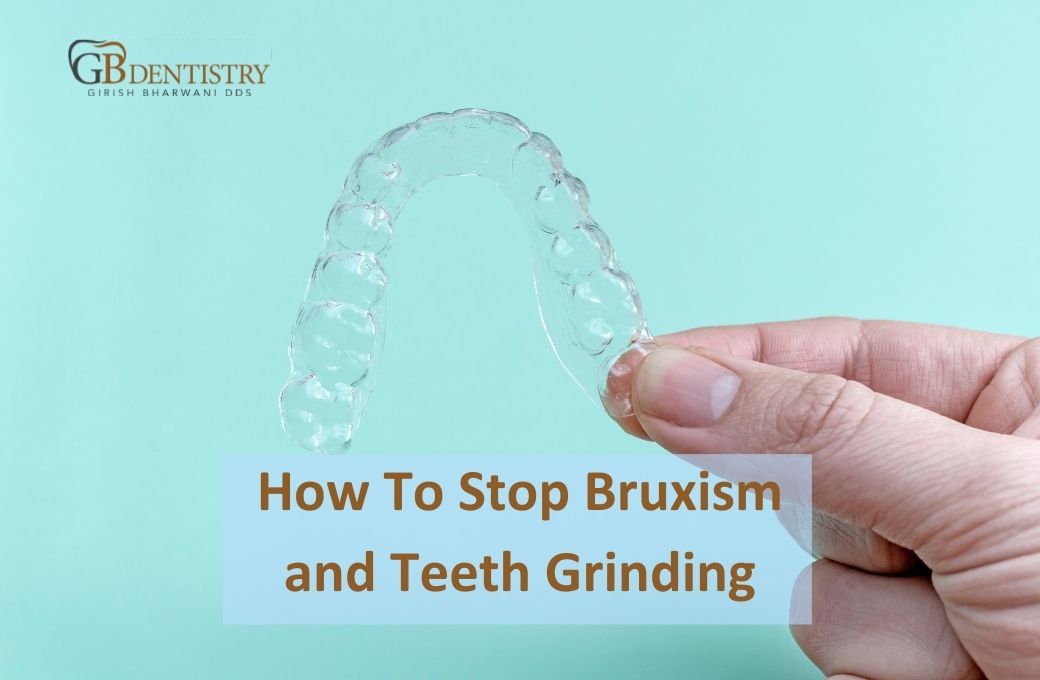Bruxism Mouth Guard: Key to TMJ Pain Relief & Better Sleep
Relieve TMJ pain and improve sleep with a custom bruxism mouth guard from GB Dentistry in Memorial, Houston. Comfortable, effective protection starts here.

Have you ever woken up with a sore jaw or a dull headache? These could be signs of bruxism, a condition where you unconsciously grind or clench your teeth. Bruxism can occur both during the day and night, often unnoticed until it causes significant discomfort or dental issues. In this article, we will explore what bruxism is, its symptoms, causes, and most importantly, how you can stop teeth grinding and protect your oral health.
Bruxism is the medical term for grinding or clenching your teeth. It’s a common condition that affects people of all ages and can happen during the day (awake bruxism) or at night (sleep bruxism). While occasional teeth grinding might not cause harm, chronic bruxism can lead to serious dental and health problems, including damaged teeth, jaw disorders, and headaches. Understanding the nature of bruxism is the first step towards finding effective solutions and preventing further complications.
Recognizing the symptoms of bruxism is crucial for early intervention. Common symptoms include:
Understanding the causes of bruxism helps in finding effective treatment. Common causes include:
Bruxism is generally categorized into two types:
Diagnosing bruxism typically involves a combination of dental examinations and patient history:
Treating bruxism involves a multi-faceted approach tailored to the individual’s needs:
There are several natural methods to help reduce teeth grinding:
Implementing these natural remedies can significantly reduce the frequency and severity of teeth grinding, leading to better oral health and overall well-being.
Preventing bruxism involves making lifestyle adjustments and practicing good oral habits:
At GB Dentistry, we understand the challenges that come with Bruxism Relief in Memorial, Houston, TX. Our goal is to provide comprehensive care that addresses both the symptoms and underlying causes of teeth grinding. If you’re experiencing jaw pain, headaches, or any signs of bruxism, don’t hesitate to reach out.
Our dentists are dedicated to helping you find relief through personalized treatment plans and expert guidance. Remember, early intervention can prevent further damage and improve your overall quality of life. Request an appointment and take the first step towards a healthier, more comfortable smile.
Curing bruxism involves identifying triggers and using treatments like custom nightguards or stress management techniques. GB Dentistry offers personalized solutions to effectively manage bruxism.
Bruxism often stems from stress, anxiety, misaligned teeth, or certain medications. GB Dentistry evaluates underlying causes to create a tailored treatment plan for lasting relief.
Custom-fitted nightguards are the most effective treatment, preventing teeth grinding and reducing jaw strain. GB Dentistry specializes in designing comfortable and effective nightguards.
Natural remedies include stress reduction, avoiding stimulants like caffeine, and practicing relaxation techniques. GB Dentistry complements these methods with professional interventions for optimal results.
Facial changes from bruxism, like muscle enlargement, can be addressed with dental treatments and Botox® injections. GB Dentistry provides expert care to restore your natural appearance.
A general or cosmetic dentist with experience in treating bruxism is best suited. GB Dentistry offers comprehensive care to protect your teeth and relieve symptoms.
Dentists trained in TMJ disorders and restorative care specialize in bruxism. GB Dentistry’s team is highly skilled in diagnosing and managing bruxism effectively.
Yes, damaged teeth can be repaired with treatments like crowns, veneers, or bonding. GB Dentistry restores worn or fractured teeth to their original strength and beauty.